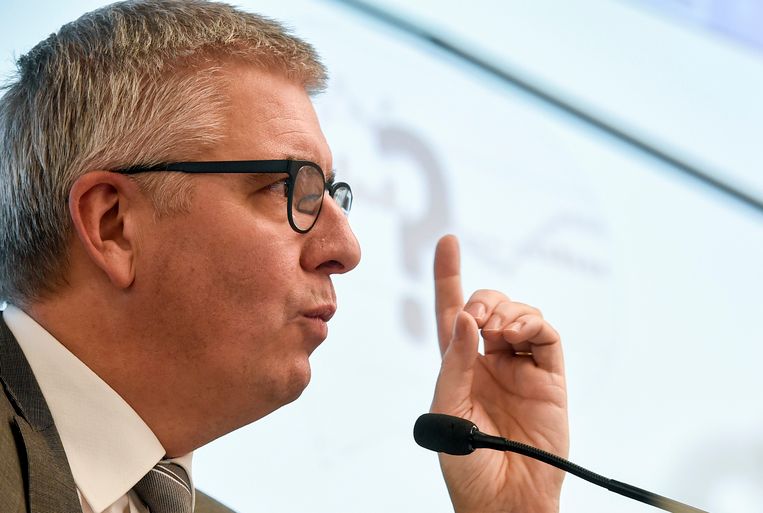The Belgian employers’ association, the Federation of Belgian Enterprise (FEB), has called on the political parties to look for an éminence grise, “if necessary from outside politics,” to help them out of the impasse in trying to form a new government.
Historically, the word ‘eminence’ referred to the title of a red-robed cardinal of the Catholic Church, and the éminence grise was the influential friar François Leclerc du Tremblay, who unlike his superior Cardinal Richelieu dressed in beige or grey. Such was his influence with the Cardinal that he was addressed by the same title himself.
Nowadays, an eminence grise or grey eminence is a powerful adviser who operates behind the scenes, usually in an unofficial capacity.
The call from the FEB comes after the failure of two senior politicians – Didier Reynders and Johan Vande Lanotte – followed by four party presidents – first George-Louis Bouchez (MR) and Joachim Coens (CD&V), then Paul Magnette (PS) and Bart De Wever (N-VA) to break the political logjam and come up with a blueprint for constructing a new majority government.
The result is that more than 440 days have now passed since the last elections and the country, in the grip of a worldwide pandemic, is being run by a minority government that operates with the blessing of parliament – but only until 17 September, one month and one day from now.
From his position as boss of the bosses, FEB president sees the problem clearly.
“We will have a loss of 10% of our wealth this year,” he said in interviews with De Zondag and the VRT. “We are about to lose 8-10% of our companies, and we’re looking at 150,000 to 200,000 new unemployed.”
The way things stand, new elections would solve nothing, he said, and would in fact be highly irresponsible in the midst of an epidemic.
Better to bring in an outsider – someone with no more political aspirations (as was the case with Reynders and Vande Lanotte) or a figure from outside politics, to hold talks with not only the party leaders but also the National Bank, the planning bureau and the social partners (unions and employers) in the search for a solution.
“He or she must take stock of what is needed in the social, economic, ecological and digital fields, and then determine who is willing to participate in the story. Hopefully this will result in a majority.”
Whom he might have in mind for the job, he would not reveal.
Meanwhile another business leader, the managing director of Unizo, which represents the self-employed, called the two so-called preformateurs – Magnette and De Wever – back to the negotiating table, instead of making their way to Laeken tomorrow as planned, to ask to be relieved of their mission by the King.
“Failure is not an option,” said Danny Van Assche. “This is not the moment to stop your efforts. As we face the greatest crisis since World War II, it is time to accept your responsibility.
Van Assche also looked forward to the deadline for the end to the special powers granted to the minority government of Sophie Wilmès.
“We need a government,” he said. “And that's not something you hear said often, not a mantra we repeat after every election. Never before have we faced such a challenge. There is a great need for that government to be in place.”
Alan Hope
The Brussels Times

